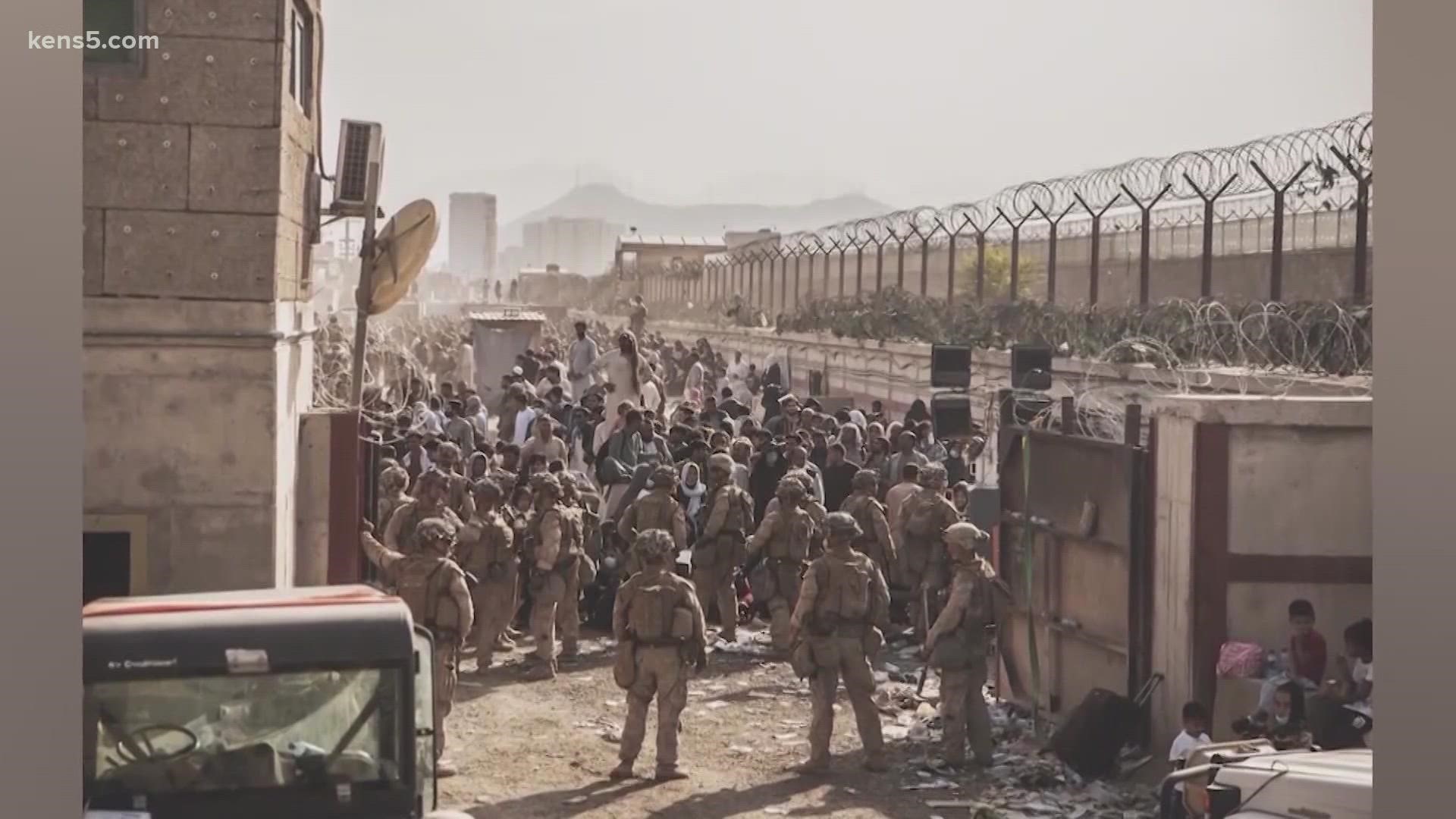SAN ANTONIO — An Islamic State affiliate, ISIS-K, claimed responsibility for the bombing on the Kabul airport Thursday. The attack killed at least a dozen American military servicemen and escalated tensions between ISIS and the Taliban.
ISIS-K refers to Islamic State extremists operating in the Khorasan province, a region the organization defines and seeks to control which includes Afghanistan.
University of Texas historian and global affairs expert Jeremi Suri likened the organizations to rival gangs from different areas. The two are ethnically different, he said.
"They do share certain ideological goals, but they're very different in their makeup," Suri said, noting that members of each group are Sunni Muslims. There are also some members of ISIS that defected from the Taliban.
"The Taliban want to rule Afghanistan. They want to rule it harshly with their own restrictions on women and various other things, but they want a functioning state," he said. "ISIS is less concerned about what happens in Afghanistan. It wants to use Afghanistan as part of a step to some kind of larger revolution."
The Islamic State says it aims to establish a Muslim empire, called a Caliphate.
"In a sense, the Taliban is building dams and ISIS is trying to create a flow," Suri said.
"You can think of the Taliban as a replacement to the Afghan state, and you can think of ISIS as seeking to bring the Afghan state into a regional revolution," he added.
For this reason, the United States has dealt with the Taliban as it exits Afghanistan.
"If the police are leaving the neighborhood, you want another gang to step in and at least provide some order," Suri said. "You don't want the group that's just trying to set the whole neighborhood on fire to be in charge."
Suri noted that foreign aid accounts for roughly 70% of the Afghan budget. The Taliban is willing to establish a diplomatic government, he says, to continue tapping into this money for its purposes.
"They want to form a functioning state with functioning institutions in their own, extreme way," Suri added.
Ethnic conflict in Afghanistan is decades-old, not ancient.
The historian says the two rival gangs' ancestors were never friendly, but coexisted for decades prior to the Soviet invasion in 1979. That war militarized the rivalry and radicalized local fighters.
Americans helped drive the communist army out of Afghanistan by offering military supplies to local fighters. When the Soviets left, munitions stayed behind.
"In that crucible of warfare that continued for more than a decade, different militarized factions formed," Suri said. "Then Americans stepped into that."
Suri says this conflict is not about Christianity and Islam.
"The Taliban and ISIS will kill far more Muslims than non-Muslims," he said. "It's groups of many different kinds of families fighting over the same territory. Religion is not what's motivating this. Religion is used as a tool."
"It's about control of land and control of people."

